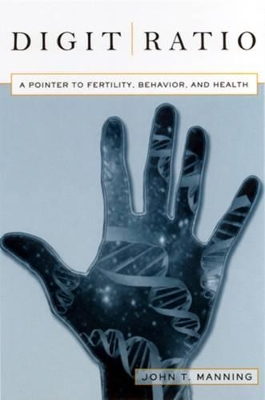Could the length of your fingers predict a predisposition to breast cancer? Or musical genius? Or homosexuality? The author posits that relative lengths of the second and fourth digits in humans (2D:4D ratio) provides a window into fertility- and sex-related traits. It has been known for more than a century that men and women tend to differ in the relative lengths of their index and ring fingers, which upon casual observation seem fairly symmetrical. Men on average have fourth digits longer than their second digits, while women typically have the opposite. Digit ratios are unique in that they are fixed before birth, while other sexually dimorphic variables are fixed after puberty, and the same genes that control finger length also control the development of the sex organs. The 2D:4D ratio is the only prenatal sexually dimorphic trait that measurably explains conditions linking testosterone, oestrogen and human development, the author argues. The study of the ratio broadens our view of human ability, talent, behaviour, disposition, health and fertility.
In this book, Manning presents evidence for how 2D:4D correlates with genetic traits ranging from sperm counts, the likelihood of having male versus female offspring, musical genius, homosexuality and sporting prowess, to autism, depression, heart attacks, or breast cancer, traits that are all linked to sex hormones.
- ISBN13 9780813530291
- Publish Date 28 February 2002
- Publish Status Out of Print
- Out of Print 24 June 2009
- Publish Country US
- Imprint Rutgers University Press
- Format Hardcover
- Pages 208
- Language English
